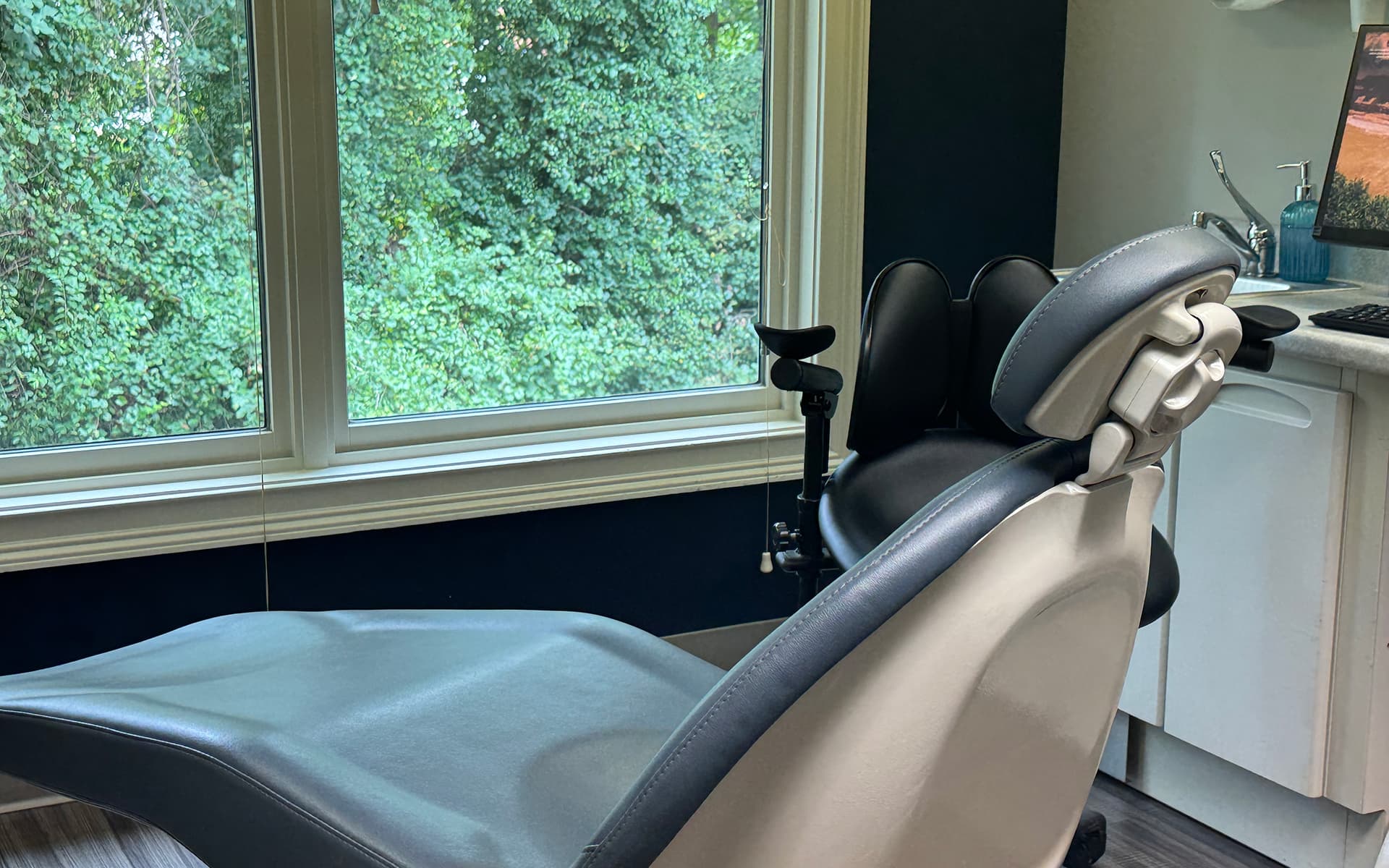Even with great brushing, flossing, and regular checkups, life happens. And sometimes a tooth can become damaged or decayed beyond what a simple filling can fix. When that happens, Dr. Shue Her may recommend a dental crown: a strong, natural-looking solution that restores your tooth’s function and beauty while protecting it for the future. At Lifetime Dental of Gainesville, we’re here to make the process simple, comfortable and reassuring, so you can smile with confidence again.
What Are Dental Crowns?
A dental crown is a custom-fitted cap placed over a damaged tooth to restore its shape, strength and appearance. Depending on your needs, our crowns can be made from various materials, including porcelain, zirconia, and other metal alloys.
When Are Dental Crowns Needed?
- To fix a broken or severely worn-down tooth
- To restore a decayed tooth that can’t be repaired with fillings
- As a finishing touch to a root canal treatment
- To secure a dental bridge or cover a dental implant.
How Are Dental Crowns Placed?
Getting a crown doesn’t have to feel overwhelming. At Lifetime Dental, we make the process smooth, comfortable and straightforward. During your first visit, Dr. Her will carefully treat and reshape your tooth so your crown will fit perfectly. We’ll take precise impressions, which skilled lab artisans use to craft a custom crown that looks and feels natural. While it’s being made, a temporary crown will protect your tooth so you can go about your daily life worry-free. At your second visit, your permanent crown will be securely bonded in place, restoring strength and functionality for years to come.
Caring for Your Dental Crown
A dental crown can last for decades with proper care, which includes:
- Brushing and flossing daily
- Attending regular dental checkups
- Avoiding hard or sticky foods that might damage the crown
- Avoiding poor dental habits, like smoking or using your teeth as tools
- Using a mouthguard if you grind your teeth
Strong Smiles Made Affordable
When it comes to restoring your smile, we know cost is often a big concern, and it can feel overwhelming to sort through. Because every crown is custom-made, the price can vary depending on your unique needs, which is why online estimates rarely tell the full story. At Lifetime Dental of Gainesville, we’re here to guide you through the details, answer your questions and help you find a solution that keeps your care affordable. Our goal is simple: to make sure nothing stands between you and the healthy, confident smile you deserve.
Your Smile, Reinvented with Precision
A dental crown acts as a cap placed over a damaged or weakened tooth to restore its shape, size, strength, and appearance. You may need a crown to repair a cracked or decayed tooth, protect a tooth after a root canal, or complete a dental implant.
While dental crowns aren’t permanent, they are built to last, often protecting a tooth for 5 to 15 years or more with good care. Because the enamel is gently reshaped to place the crown, that tooth will always need the protection a crown provides. The good news? A crown acts like a strong shield, guarding your tooth against further damage and helping it stay healthy much longer than it could on its own. It’s a long-term solution that gives your smile strength, function and peace of mind.
We use high-quality materials for crowns including ceramic, porcelain, zirconia, and metal alloys. Each material is chosen to match your specific needs, ensuring durability and a natural look.
With our CEREC technology, we provide same-day crowns, allowing you to receive your custom restoration in just one visit. Traditional crowns may take two visits, spanning a few weeks.
To care for your crown, maintain good oral hygiene by brushing and flossing daily, attending regular dental checkups, avoiding hard or sticky foods, and using a nightguard if you grind your teeth.
Yes, our dental crowns are designed to blend seamlessly with your natural teeth. We match the color, shape and size, ensuring they look and feel natural, enhancing both function and aesthetics.
Enhance Your Smile Today
Don’t let a damaged tooth affect your quality of life. Contact Lifetime Dental of Gainesville at (770) 536-6688 to schedule your appointment for a dental crown consultation.
